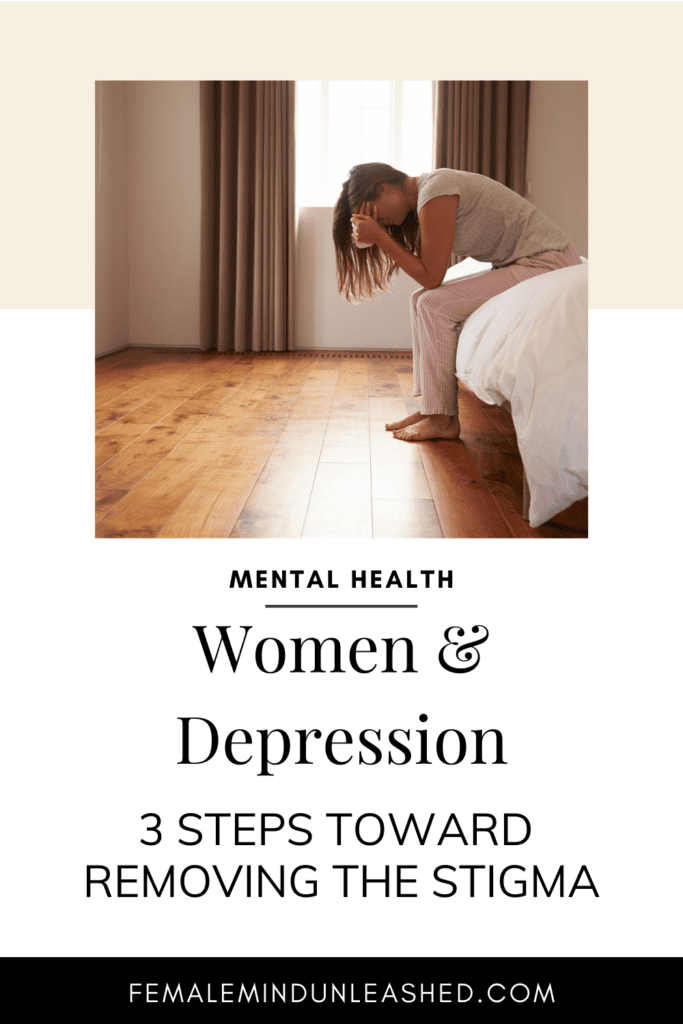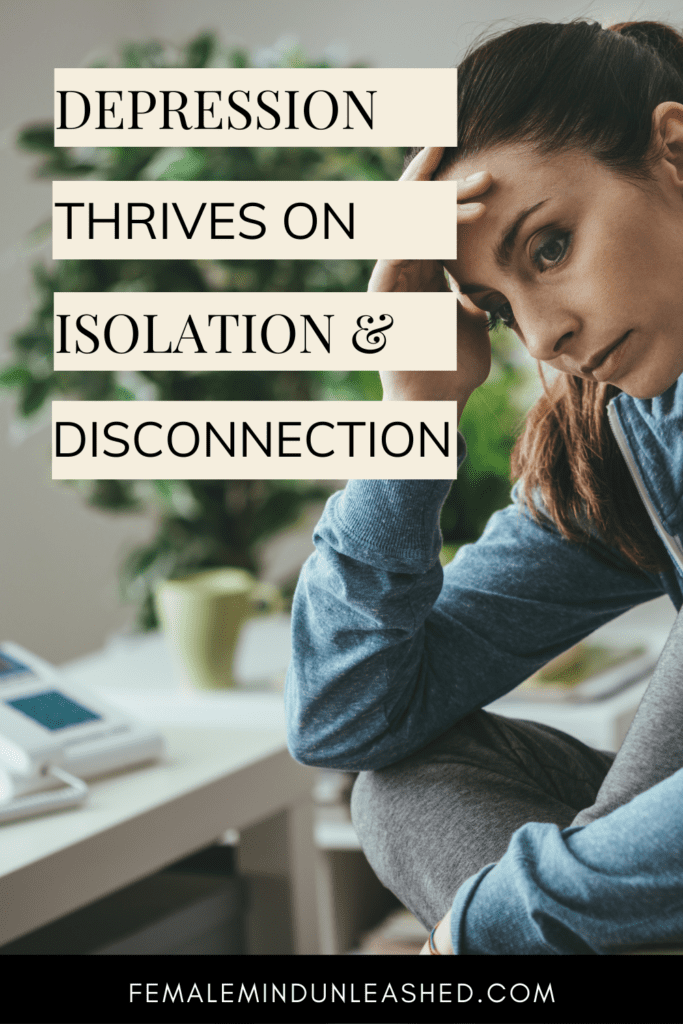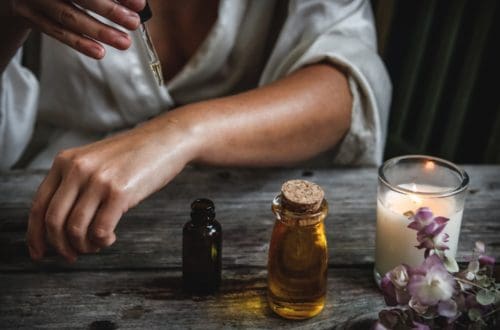Women and Depression: 3 Steps To Help Remove The Stigma
If you’re having suicidal thoughts or need help, help IS available today. Call the National Suicide Prevention Lifeline to speak with someone immediately at 800-273-8255.
Depression and Disconnection
Depression is a hard thing to talk about, especially when you’re in it. No matter how badly you long to resurface back to the life experience you once knew. When you’re in the depths of a mental health hailstorm, it’s not unlikely to feel hesitant or resistant to share those feelings with others.
Unfortunately, isolation is depression’s fuel.
Depression can grow when you keep your feelings to yourself and suffer silently.
When left to its own devices, depression will tell you to keep turning inward. There is no one who will understand. People will think you’re crazy, dramatic, or scary. No one can help you.
When you lock yourself into your experience without cracking any windows for air you can end up trapped in a negative thought loop. This inner world is driven by depression’s hungry confirmation bias:
“I told you, this is bad.”
“I told you, you are bad.”
“I told you, everything sucks.”
Depression is on a mission; a constant hunt for any evidence to affirm your current state of mind.
Luckily, there are a few ways you can challenge depression: through conversation and connection. Below are 3 steps you can take to remove the stigma of talking about depression and find the support you need.

Step 1: Separate Yourself from the Experience
The thoughts you might have when you’re depressed vary from person to person, but can be unnerving. It might feel as if some other entity has taken temporary control of your mind (although it feels much more permanent at that moment). Intrusive thoughts, scary or violent images, apathetic reactions (like staying in bed), and a dull emotional baseline are all the brain’s response to depression.
These experiences can leave you feeling panicky or even more afraid.
It’s important to note that depression is not who any of us are. It’s a mental imbalance and chemical response that masks the depth and beauty that lives within.
We each have our own unique stories with depression. Some of us endure this burden consistently. Others of us experience it in dull patches slapped over months of our lives. Some of us may experience sadness in ways that do not impact our qualities of life as much as others.

Step 2: Accept Yourself – and Your Story
Many women have been touched by depression, either as a sufferer or a supporter of someone who has suffered.
Each of our stories matter.
Because depression depends on isolation, you must actively breakthrough the muck to establish a connection with those around you and ground yourself in reality. Your connections with your community play a significant role in increasing your sense of happiness, gratitude, and inclusion.
Creating safe spaces for women to share their stories about depression begins with owning your story. Every sentence you utter about your experience creates a crack in depression’s foundation and removes some of the stigma.
What you need most during these times is to love and accept yourself, just as you are. Even when you’re feeling vulnerable, ashamed, or hopeless. Especially when you’re feeling these things. If you choose to follow fear in favor of revealing your full selves, what negative thoughts are you allowing depression to reinforce as truth?
Often, it’s that you’re deserving of shame, that you shouldn’t connect, that you must keep these unsavory parts of yourself hidden in the dark. So how can you expect genuine intimacy and connection if you listen to those thoughts?
Step 3: Starting the Conversation
There is no wrong way to jump into the conversation surrounding women and depression. You can pick and choose who to start it with. It’s up to you to decide if want to baby step into it until you’re ready to reveal more or bare your soul entirely in one go. You can share privately with a trusted confidant or publicly with as many readers as will read it. But please, please have the conversation.
This conversation is your first step out. It’s okay to share this part of yourself with others. It’s okay to feel afraid, alone, or out of hope. That is what makes the experience of life human.
Most importantly, if you’re on the other side, it’s okay to just listen, even if you’re not sure what to say to a suffering friend.
Hope is the result of feeling heard.
Do you have experience with depression that you’re ready to share? Leave a comment below.






